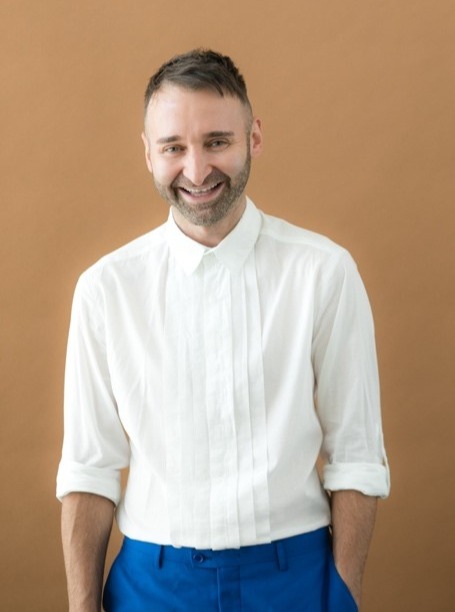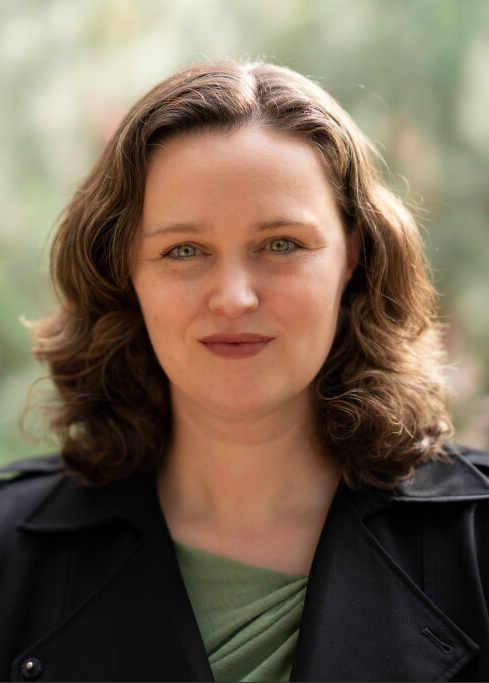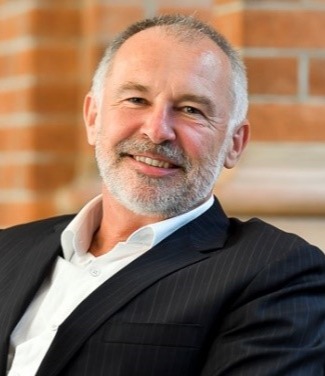Complexity Leadership Symposium
Event description
The Australian National University (ANU), in partnership with the Menzies Foundation, proudly presents the Complexity Leadership Symposium—a two-day event bringing together leaders from industry, academia, and government to explore how the field of leadership must evolve to address the complexities of the 21st century. Whether you're a leader, academic, practitioner, or pracademic, this event offers a unique opportunity to engage with the emerging field of complexity leadership and play a critical role in its development.
The symposium will explore the multifaceted dimensions of complexity leadership, aiming to foster a unified understanding and common language across sectors. Participants will walk away with a shared sense of complexity leadership and actionable tools and methodologies for navigating multifaceted challenges within their industries and organisations. It also marks the launch of the ANU Complexity Leadership Lab as a global hub for complexity leadership theory, measurement, research, education, and practice. Participants will engage with ANU’s cutting-edge research and thought leadership, gaining insights and strategies that can be directly applied to their organisations to improve leadership in complex environments.
The goals of the symposium are to:
- launch the ANU Complexity Leadership Lab as a global hub for transdisciplinary approaches to complexity leadership theory, measurement, research, education, and practice. The Complexity Leadership Lab is being led by Professor Katherine Daniell, Associate Professor Alessandra Capezio, Associate Professor Maia Gould, and Dr Aiden M. A. Thornton in collaboration with a variety of other partners across ANU and beyond
- share and explore multiple perspectives about the complex challenges we are currently facing in organisations and in society, and ways of leading through this complexity
- begin to foster a community of people who perceive the need for evidence-informed approaches to complexity leadership
- begin to shape possible directions for complexity leadership research for the coming years
Customise your participation in the symposium by clicking 'Get tickets' where you will be invited to select one or more attendance options which will include Day 1, Day 2 or the Public Oration.
Agenda
Day 1. Thursday 5 December
9 am - 4.30 pm, Location: Innovation Space, Lv 2 ANU Birch Building
Day 1 sessions will include launching the ANU Complexity Leadership Lab, an interactive workshop on Dragonfly Thinking, interactive discussion about complex questions we are facing in our respective organisations and beyond, a panel discussion on navigating complexity in the public sector ecosystem. Day 1 is relevant to leaders, practitioners, academics, and pracademics.
5.30 - 7 pm, Location: The Shine Dome, Australian National University
The Complexity Leadership Oration, a key highlight of the symposium, will be delivered by BNSF Endowed Professor Mary Uhl-Bien, an eminent scholar in the field of leadership who is listed in Stanford’s top 2% of scientists in the world. Titled Complexity Leadership: Enabling People and Organisations for Adaptability, the oration will explore groundbreaking ideas on how leaders can navigate complexity in today’s fast-evolving world. The event promises to challenge conventional approaches and inspire new strategies for leading in complexity. Following the oration, a panel discussion with leading experts will further examine the implications for leadership in the context of complexity.
Day 2. Friday 6 December
9 am - 4.30 pm, Location: Innovation Space, Lv 2 ANU Birch Building
In Day 2 of the symposium, attendees will have the opportunity to actively shape possible directions for complexity leadership research for the coming years, including the research undertaken by the ANU Complexity Leadership Lab. Day 2 is deliberately designed to be more intellectually spacious and will draw upon collaborative facilitation techniques to create an open environment for meaningful conversations that address the most pressing questions in complexity leadership. Participants will gain insights from diverse perspectives, and build valuable connections that could lead to future industry collaborations and impactful projects. Day 2 is most relevant to academics, pracademics, and practitioners who are interested in conversations about theory, measurement, research, and education. Please register to day 2 if you can contribute to research questions, research design, and research methodology.
Please click here for more program info.
Speakers
Mary Uhl-Bien

Mary Uhl-Bien is the BNSF Railway Endowed Professor of Leadership in the Neeley School of Business at Texas Christian University (TCU). Mary has contributed to leadership research and practice through her work on complexity leadership, relational leadership, followership, and leader-member exchange (LMX) theory. In 2023 she received an Eminent Leadership Scholar Award from the Network of Leadership Scholars (NLS) in the Academy of Management, the highest honor given to a leadership scholar. Mary was recognized by Poets and Quants as a Top 50 Undergraduate Business Professor, and she is listed in Stanford’s top 2% of scientists in the world. She is active in executive education nationally and internationally and has been a regular commentator for CNBC Squawk Box.
Alessandra Capezio

Alessandra Capezio is an Associate Professor of Organisational Behaviour in the ANU Research School of Management, Fellow of the Centre for Evidence Management, and the ANU MBA Director. Alessandra's overarching purpose as an organisational scholar-practitioner and educator is to help people, leaders, and boards, to make more evidence-informed decisions in complex work environments, ultimately for the betterment of society. Alessandra is committed to questioning and 'breaking through' silos, fault-lines, entrenched ways of thinking, relating and doing, and logics and orthodoxies that get in the way of effective organisational decision-making.
Katherine Daniell

Professor Katherine Daniell is the Director of the Australian National University’s School of Cybernetics. She also works in the ANU Institute for Water Futures and Fenner School of Environment and Society. Trained in engineering, arts and public policy, Katherine’s transdisciplinary work focuses on collaborative approaches to policy, action and education for sustainable development. Katherine is a John Monash Scholar, a member of the National Committee on Water Engineering, a member of the Rivers Committee of the Initiatives of the Future of Great Rivers, President of the French-Australian Association for Research and Innovation (AFRAN) Inc., and a Chevalier (Knight) in the French Ordre National du Mérite.
Liz Gillies

Liz Gillies has had over 25 years' experience in a range of fields focused on initiatives for social impact. She has held roles in multiple sectors and academia. In 2018, Liz was appointed CEO of the Menzies Foundation which aspires to build a leadership movement that supports Australians to pivot to purpose, build their leadership capability and contribute to the ‘greater good’. Liz joined the Melbourne Business School in 2009 and was instrumental in establishing the Asia Pacific Social Impact Centre (APSIC) and The Centre for Ethical Leadership. In November 2011 she was appointed as research fellow to lead a partnership focused on strategic philanthropy which culminated in the release of the reports: Philanthropy: Towards a Better Practice Model (2018) and the Philanthropy: The Continued Journey to Real Impact and better Practice (2021). Liz has extensive governance experience, having served on the Board of the Publish Galleries Association of Victoria, Social Firms Australia, Uniting Care Community Options, United Way Australia and the Development Committee of the Towards a Just Society Foundation. She is currently on the Philanthropy Reference Group of Barmal Bijiril and a Director of Philanthropy Australia.
Maia Gould

Associate Professor Maia Gould works in cybernetic leadership, which encompasses management cybernetics, data and AI use in professional settings, technology adoption and implementation, and historically-informed analysis of technology-enabled futures. She focuses on applying cybernetic tools and methods through research (including co-designed and participatory research) with external partners, on real world problems, drawing on her career in strategy consulting and technology law, and education in bioethics in emerging technologies context. She has worked with a range of Australian and international organisations and managed large-scale social research on issues such as leadership, mental health and corporate social responsibility.
Aiden Thornton

Dr. Aiden M. A. Thornton is a leadership scientist, management consultant, amateur epistemologist, and entrepreneur. He holds an interdisciplinary PhD in leadership, complexity, and cognition and is the Inaugural Menzies Senior Research Fellow in Leadership and Complexity at the Australian National University’s School of Cybernetics. With over 25 years of international experience across Australia, Asia, and Europe, Aiden leads his own consulting practice, specializing in leadership, change management, and organizational development. He is deeply engaged in Street Epistemology, a Socratic method encouraging critical reflection on deeply held beliefs, and is working to introduce it in Australia to address emerging socio-political polarities. Additionally, Aiden is establishing a psychometrics company focused on developing world-class leadership assessments. Known for his intellectual rigor, bold thinking, and collaborative approach, Aiden partners with leaders and organizations to integrate the science and practice of leadership.
Anthea Roberts

Anthea has taught at the ANU, LSE, Columbia and Harvard. She is an interdisciplinary researcher who focuses on new ways of thinking about complex and evolving fields. The League of Scholars has ranked Anthea as the world’s leading international law scholar (2019) and Australia’s leading international law scholar (2022, 2023). Her books have won international awards, including the American Society of International Law’s top book prize, and been selected as one of the Best Books of the year by the Financial Times and Fortune Magazine. Anthea founded Dragonfly Thinking, which creates AI tools for analyzing complex issues of risk and strategy. Dragonfly Thinking won the inaugural AI Sprint for Australia and also successfully completed the CSIRO ON Accelerate program and the Defence Trailblazers program.
Gerald Midgley

Gerald Midgley is an Emeritus Professor in the Centre for Systems Studies, University of Hull, UK. He also holds Visiting Professorships in the Birmingham Leadership Institute, University of Birmingham (UK), and Linnaeus University (Sweden). Gerald has held research leadership roles in both academia and government, including fourteen years as Director of the Centre for Systems Studies at Hull, and seven years as a Senior Science Leader in the Institute for Environmental Science and Research (ESR), New Zealand. He has written almost 400 papers for academics and practitioners on systems thinking, systemic leadership and community operational research, and has been involved in a wide variety of public policy, health service, natural resource management, community development and technology foresight projects. While most of these have been in the UK or New Zealand, he has also led or collaborated with systemic interventions on every continent, world-wide. Gerald was the 2013/14 President of the International Society for the Systems Sciences. He has written or edited twelve books, including: Systemic Intervention: Philosophy, Methodology, and Practice (Kluwer, 2000); Systems Thinking (Sage, 2003); Community Operational Research: OR and Systems Thinking for Community Development (Kluwer, 2004); The Handbook of Systems Thinking (Open Science, 2023); and Systems of Marginalization and Identity (Routledge, 2025, in press).
Gordon de Brouwer

Gordon was appointed as the Australian Public Service Commissioner commencing 11 May 2023 and was previously the Secretary for Public Sector Reform. Prior to this Gordon was Professor of Economics, jointly appointed to the Crawford School of Public Policy and College of Business and Economics.
Gordon has extensive experience in public policy and administration in Australia, including as Secretary of the Department of the Environment and Energy (2013-17) and senior roles in the Department of the Prime Minister and Cabinet (including Associate Secretary of Domestic Policy Group and G20 Sherpa, 2008-13), Treasury (2002-08), ANU (Professor of Economics, 2000-02) and the Reserve Bank of Australia (1991-99).
He is committed to public value, high-quality policy and implementation, and effective government. Gordon has a PhD in economics from the Australian National University, and was awarded a Public Service Medal in 2011.
Tickets for good, not greed Humanitix dedicates 100% of profits from booking fees to charity
